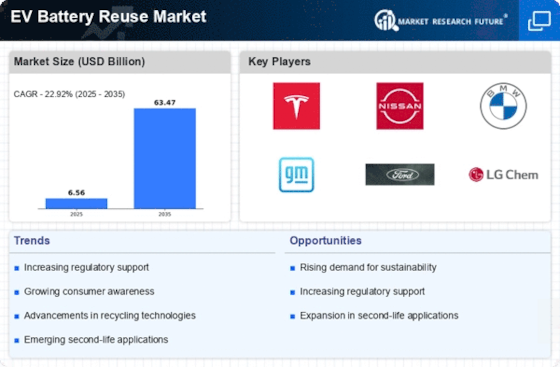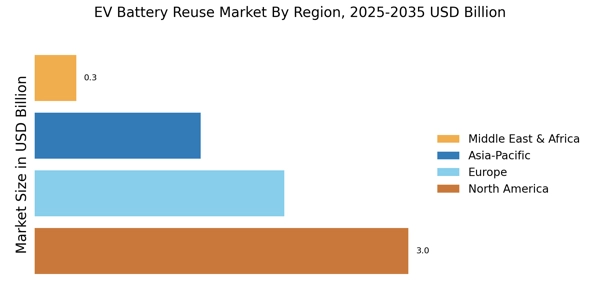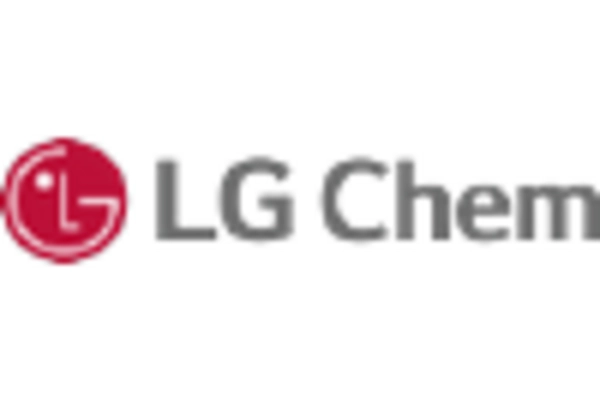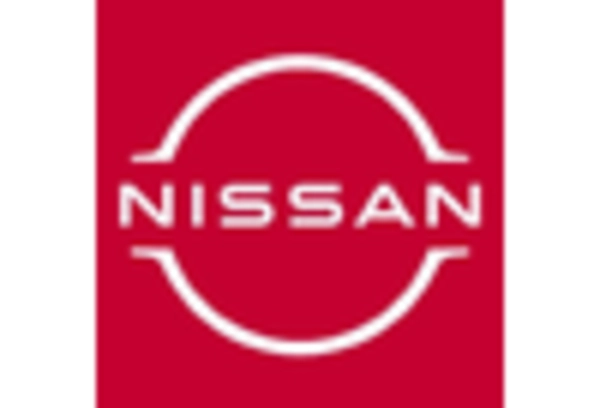Economic Viability
The economic viability of battery reuse is a significant driver for the EV Battery Reuse Market. As the cost of raw materials for new batteries rises, the financial incentives for reusing existing batteries become more pronounced. In 2025, the cost savings associated with battery reuse could amount to billions, making it an attractive option for manufacturers and consumers alike. Additionally, government incentives and subsidies aimed at promoting sustainable practices further enhance the economic appeal of battery reuse. This trend indicates that the EV Battery Reuse Market is not only environmentally beneficial but also economically advantageous, potentially leading to increased adoption rates among consumers and businesses.
Regulatory Support
Regulatory frameworks are increasingly supporting the EV Battery Reuse Market, creating a conducive environment for growth. Governments worldwide are implementing policies that promote battery recycling and reuse, recognizing the environmental benefits associated with these practices. For example, regulations mandating the recycling of lithium-ion batteries are becoming more common, which could drive demand for reused batteries. In 2025, it is anticipated that such regulations will lead to a market expansion, with projections indicating a potential increase in market size by 15% annually. This regulatory support not only encourages manufacturers to invest in battery reuse technologies but also fosters consumer confidence in the sustainability of reused batteries.
Technological Innovations
Technological advancements play a crucial role in shaping the EV Battery Reuse Market. Innovations in battery chemistry and management systems enhance the efficiency and lifespan of reused batteries. For instance, improvements in second-life applications, such as energy storage systems, are expanding the utility of retired EV batteries. The market is expected to witness a compound annual growth rate of around 20% over the next five years, driven by these technological breakthroughs. Furthermore, the integration of artificial intelligence in battery diagnostics and performance monitoring is likely to optimize the reuse process, ensuring that batteries are repurposed effectively. This dynamic landscape suggests that ongoing research and development will continue to propel the EV Battery Reuse Market forward.
Sustainability Initiatives
The increasing emphasis on sustainability is a pivotal driver for the EV Battery Reuse Market. As environmental concerns gain traction, stakeholders are prioritizing eco-friendly practices. The reuse of EV batteries not only mitigates waste but also conserves resources, aligning with global sustainability goals. In 2025, the market for reused batteries is projected to reach approximately 10 billion USD, reflecting a growing recognition of the need for sustainable solutions. This trend is further supported by regulatory frameworks that encourage recycling and reuse, thereby enhancing the appeal of the EV Battery Reuse Market. Companies that adopt sustainable practices may find themselves at a competitive advantage, as consumers increasingly favor brands that demonstrate environmental responsibility.
Consumer Awareness and Demand
Consumer awareness regarding environmental issues is a key driver for the EV Battery Reuse Market. As individuals become more informed about the ecological impact of battery disposal, there is a growing demand for sustainable alternatives. Surveys indicate that a significant percentage of consumers are willing to pay a premium for products that utilize reused batteries, reflecting a shift in purchasing behavior. This heightened awareness is likely to propel the market forward, with expectations of a 25% increase in demand for reused batteries by 2026. The EV Battery Reuse Market stands to benefit from this trend, as companies that effectively communicate their sustainability efforts may attract a more environmentally conscious customer base.


















